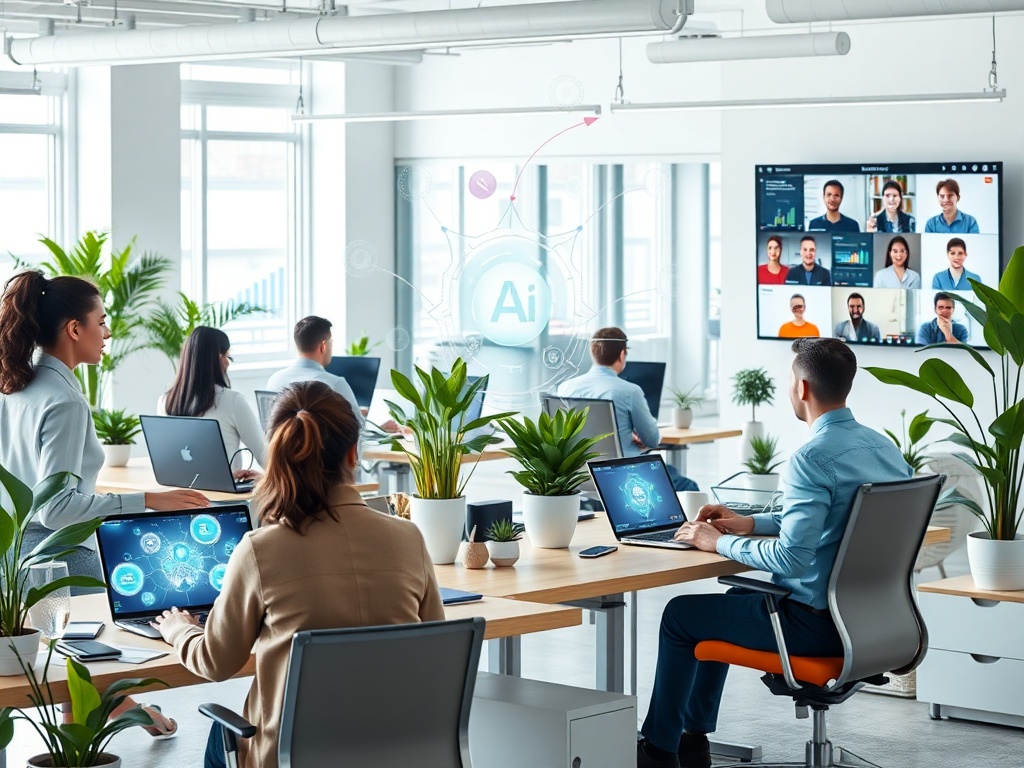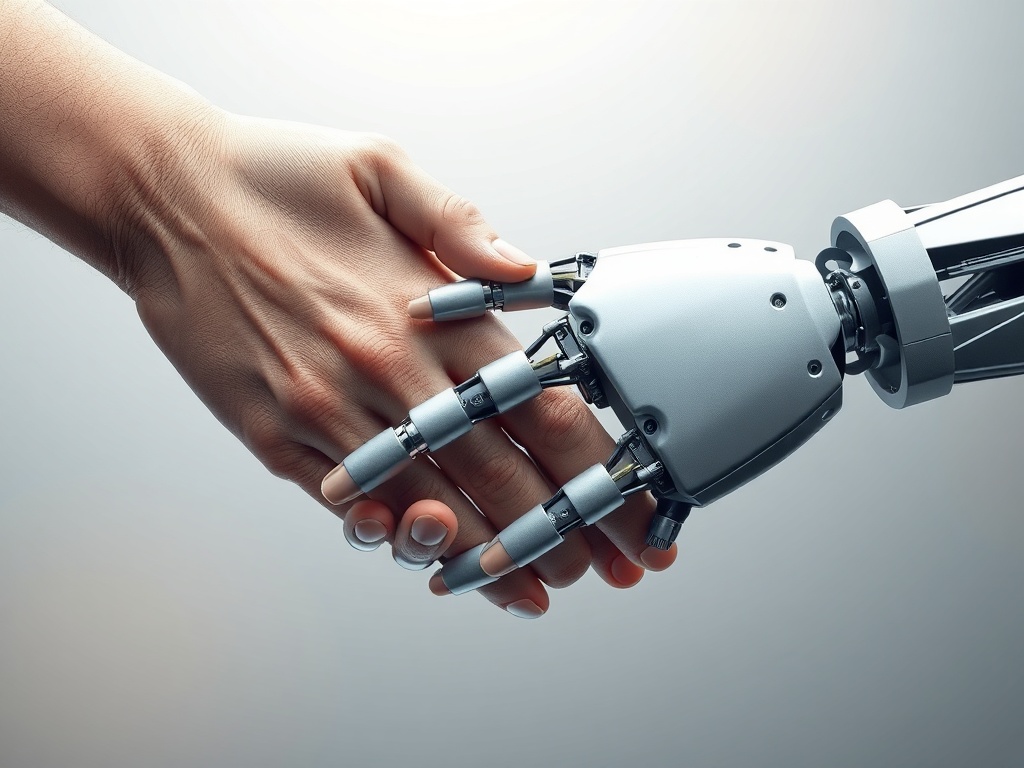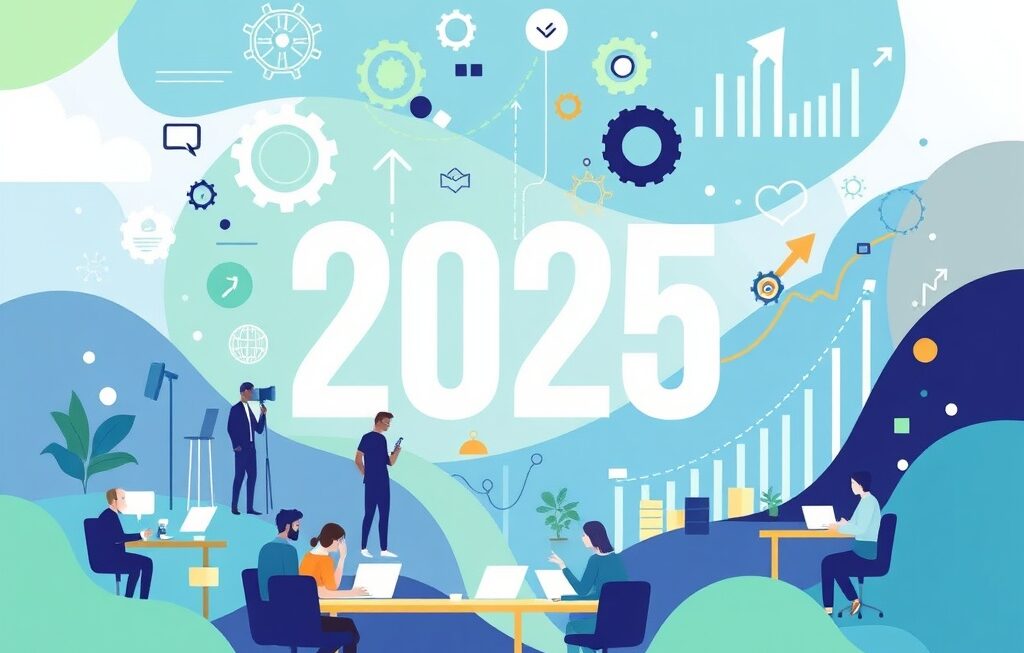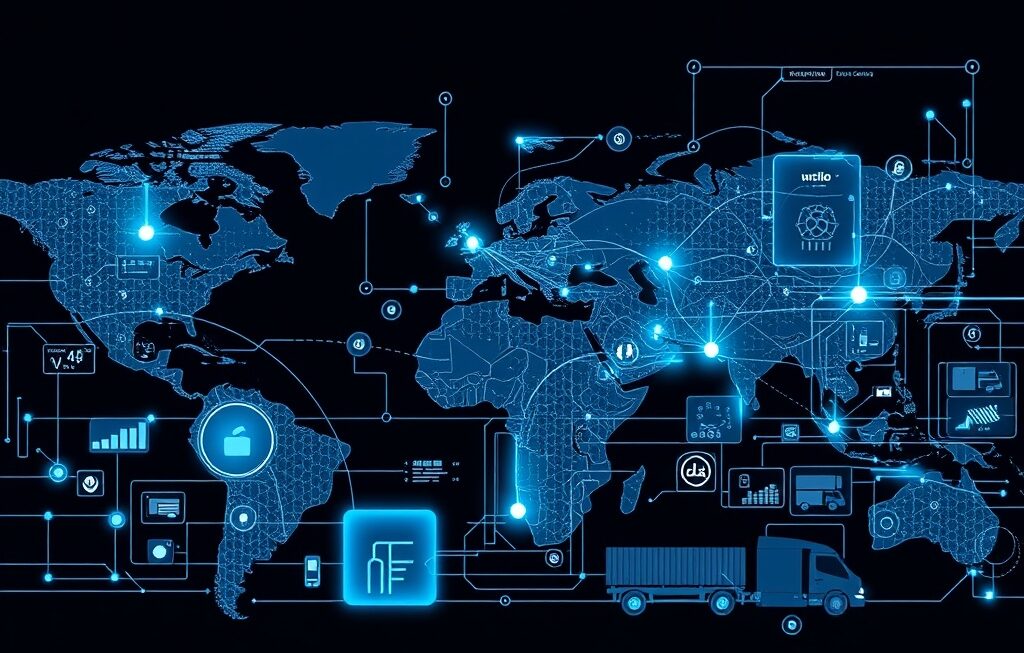How Technology is Redefining Jobs, Skills, and Global Business
The future of work and automation is one of the most discussed topics in today’s global economy. As technology evolves at an unprecedented pace, it is transforming how people work, how companies operate, and how societies function. Artificial intelligence, robotics, and digital platforms are not only increasing productivity but also redefining human potential. As a result, understanding these shifts is crucial for governments, organizations, and workers worldwide.
In 2025, the world of work is entering a new era marked by automation-driven efficiency, hybrid work models, and an urgent need for lifelong learning. This transformation presents both opportunities and challenges—creating new possibilities while demanding adaptation and innovation.
The Acceleration of Automation Across Industries
Automation is no longer a futuristic concept; it is a fundamental driver of economic progress. From manufacturing and logistics to healthcare and finance, industries are adopting intelligent systems to streamline processes and improve accuracy.
In manufacturing, robots now perform complex tasks once limited to human capabilities. In logistics, automated systems track shipments in real time, optimizing routes and reducing delays. Even in service industries, AI-powered chatbots and virtual assistants are transforming customer support and data management.
This shift toward automation increases productivity and lowers operational costs. However, it also raises pressing questions about workforce displacement and reskilling. Companies must find the balance between technological adoption and human inclusion to ensure sustainable progress.
How Artificial Intelligence is Redefining Productivity
Artificial intelligence (AI) is at the heart of the future of work and automation. Beyond automating repetitive tasks, AI enables smarter decision-making by analyzing massive datasets, identifying trends, and predicting outcomes.
Businesses that integrate AI into their operations can gain a significant competitive advantage. For instance, predictive analytics allows retailers to forecast demand with precision, while AI-driven healthcare systems detect diseases earlier and improve patient outcomes. Additionally, in finance, machine learning models are transforming risk management and investment strategies.
Nonetheless, the integration of AI also introduces ethical and social challenges. Questions surrounding bias, privacy, and accountability are forcing companies and governments to implement transparent frameworks that prioritize fairness and responsibility.
The Human Role in an Automated World
Although automation is advancing rapidly, the human factor remains irreplaceable. Creativity, emotional intelligence, and complex problem-solving are qualities that machines cannot replicate. Therefore, rather than eliminating human relevance, automation is reshaping it.
Workers are shifting from routine-based roles to positions that require innovation, empathy, and strategic thinking. As technology handles repetitive tasks, humans are freed to focus on higher-value work—driving collaboration, creativity, and purpose.
Forward-thinking organizations are already investing in human-centered strategies. They understand that success in the automated era depends not only on machines but also on the ability to harness the full potential of their people.
The Rise of Hybrid Work Models
The pandemic accelerated a transformation that continues to shape the global workforce: the rise of hybrid and remote work models. Companies worldwide discovered that flexibility can improve productivity, employee satisfaction, and access to global talent.
As we look toward 2025, hybrid work has become a standard feature of the business landscape. Workers expect autonomy, digital connectivity, and inclusive leadership. Employers, in turn, are redesigning offices, rethinking corporate culture, and adopting cloud-based tools to maintain collaboration and efficiency.
However, this new flexibility also requires new management approaches. Organizations must establish clear communication channels, trust-based systems, and inclusive digital environments to prevent isolation and ensure engagement across diverse teams.
Reskilling and Lifelong Learning as Economic Priorities
The future of work and automation demands continuous learning. As roles evolve, employees need to acquire new technical and soft skills to remain relevant. Automation may replace certain functions, but it also creates demand for specialized skills such as data analysis, digital project management, and AI system design.
Governments and educational institutions are increasingly emphasizing lifelong learning initiatives. Corporate training programs are also expanding to include microlearning, online certifications, and mentoring. According to the World Economic Forum, more than 50% of employees will require reskilling by 2027.
To remain competitive, both individuals and organizations must embrace a growth mindset—viewing learning not as an occasional activity but as an ongoing journey of professional evolution.
The Economic Impact of Automation
Automation is not only transforming individual workplaces—it is reshaping entire economies. As efficiency increases, industries are producing more with fewer resources. This shift drives higher productivity and profitability, but it also changes how income and wealth are distributed.
In advanced economies, automation can lead to short-term job displacement, particularly in sectors such as manufacturing, retail, and transportation. However, it also creates new opportunities in technology, research, and creative industries.
Emerging markets, on the other hand, face both opportunities and challenges. While automation can accelerate industrialization and attract foreign investment, it may also disrupt traditional labor markets. Therefore, strategic policy-making and international collaboration are crucial to ensure balanced growth.
Ethical and Social Implications of Automation
The growing influence of automation raises significant ethical questions. How do we ensure that technology benefits all segments of society? How do we protect data privacy and prevent algorithmic bias?
Transparency and accountability are becoming essential components of digital governance. Companies must develop clear policies to ensure fairness in automated systems. Governments, in turn, are enacting new regulations to safeguard workers and promote inclusive innovation.
Furthermore, the social dimension of automation cannot be ignored. As machines handle more tasks, humans must find renewed meaning and identity in their work. Encouraging creativity, collaboration, and purpose-driven initiatives will be key to maintaining social cohesion.
Global Collaboration and Policy Responses
Because automation impacts every economy differently, global cooperation is vital. International organizations such as the OECD, ILO, and World Economic Forum are working together to design frameworks that guide ethical AI development, labor market transitions, and economic inclusion.
Governments are also adapting labor laws and social protection systems to align with new realities. For example, several countries are testing universal basic income programs or introducing tax incentives for companies that invest in employee retraining. These efforts demonstrate a growing recognition that automation must serve humanity—not the other way around.
How Businesses Can Adapt to the Future of Work
To thrive in the automated era, businesses must embrace adaptability, foresight, and innovation. Leaders should view automation as an enabler, not a threat. By combining technology with a human-first strategy, organizations can achieve sustainable success.
First, companies should invest in employee development programs that align with digital transformation goals. Second, they should prioritize inclusivity and well-being to maintain engagement in hybrid environments. Finally, fostering a culture of innovation will ensure that organizations stay ahead of market disruptions.
In addition, integrating automation responsibly means using technology to enhance—not replace—human judgment. Ethical AI use, transparent data management, and strong cybersecurity practices are essential for building long-term trust and resilience.

Looking Ahead: The Human-Technology Partnership
As we move deeper into the digital age, the future of work and automation will continue to evolve. The balance between human creativity and technological precision will define the next era of productivity. Instead of fearing automation, societies should view it as an opportunity to unlock new levels of potential and progress.
The future belongs to those who can adapt, learn, and innovate. By embracing automation thoughtfully and investing in human capital, we can create a future of work that is more inclusive, efficient, and fulfilling for all.




